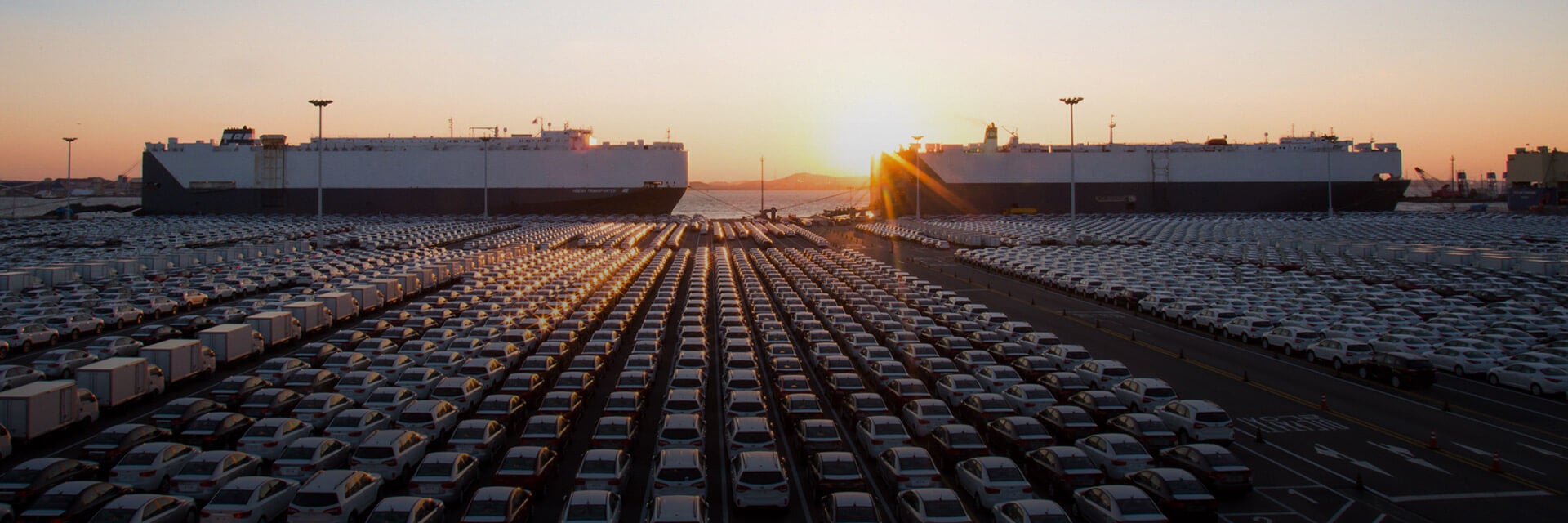
The European Union’s (EU) decision earlier this month to hike import tariffs on Chinese made battery electric vehicles (BEVs) by up to 38% has rattled the Chinese automotive industry, both domestic manufacturers and foreign joint ventures, with many companies calling for retaliatory duties to be imposed on European imports.
A meeting was hosted in Beijing last week by China’s Ministry of Commerce to discuss the EU’s decision with the country’s leading domestic automakers which is understood to have included SAIC Motor, BAIC Group and BYD Auto as well as with representatives of foreign automakers such as BMW and Volkswagen.
The higher EU import tariffs are scheduled to go into effect on 5 July, after the European Commission (EC) claimed that Chinese BEV manufacturers have unfairly benefited from substantial government incentives for over a decade. An investigation launched last October by the EC found that government subsidies were pervasive throughout China’s entire BEV production process, from the production of raw materials for battery cells through to vehicle manufacturing and shipping, with batteries often supplied “at below market prices”.
China overtook Japan to become the world’s largest vehicle exporter last year, with shipments surging by 57% to 5.2m units worth US$102bn, according to Chinese government data. Exports in the first five months of 2024 rose by 26% to 2.45m units, valued at US$46bn. This includes vehicles produced in China by Chinese and overseas manufacturers.
Separate data released by the European automobile manufacturers association (ACEA) shows that a total of 438,034 BEVs were imported by the EU from China in 2023, valued at EUR9.7bn, while the EU exported just 11,499 BEVs to China worth EUR852m.
The EC’s executive vice president, Valdis Dombrovskis, said in a statement: “In this particular case, we had no option but to act in the face of soaring imports of heavily subsidised BEVs produced in China and their rising share of this market in the EU.”
European Commission president Ursula von der Leyen told a news conference in Berlin last month that Europe needed to take steps to prevent China from flooding the market with subsidised electric vehicles.
The additional tariffs proposed by the EC vary between 17% and 38%, in addition to the existing 10% import duty, and partly reflect the level of collaboration each company contributed to the investigation. According to reports, BYD Auto will incur an additional tariff of 17% and Geely Auto 20% while SAIC Motor faces an additional 38%. Imports from China by Tesla and BMW, which are also seen to benefit from China’s subsidized supply chain, will incur additional duties of 21%.
The EC decision follows a similar move by the US government which applied 100% tariffs on Chinese made BEVs in April to develop its own BEV industry and supply chain. This move is also viewed as being part of a broader political and economic war being waged between the world’s two largest economies, with the US looking to also protect sensitive industries such as semiconductors and AI software.
Earlier this week the Canadian government announced it is also considering introducing additional import tariffs on Chinese BEVs, after a 30-day consultation period, with deputy prime minister Chrystia Freeland claiming the country’s automotive industry is threatened by “unfair competition from China’s state-directed policy of overcapacity that is undermining Canada’s EV sector ability to compete in the domestic and global markets”.
She added that Chinese producers “are quite intentionally generating a global oversupply that undermines EV producers around the world”. It has since been pointed out that the only BEV model exported to Canada from China so far is the Tesla Model Y but others brands and models will no doubt follow.
Some foreign vehicle manufacturers based in China have spoken out against the EC’s planned tariffs hikes. BMW, Volkswagen Group and Mercedes-Benz have significant manufacturing operations in the country and are implementing plans to establish major BEV production hubs to export to global markets, including to the EU. They are looking to benefit from China’s established, subsidised BEV supply chains and also use local content for connected/smart technologies, a segment also being encouraged by the Chinese government.
BMW’s CEO Oliver Zipse last month told reporters: “We don’t think our industry needs protection. You can easily endanger the advantage of operating globally by introducing import tariffs”. China currently accounts for around one third of BMW’s global sales.
Simon Schutz, spokesperson for the German automotive industry association VDA, earlier this month said: “The German automobile industry is not in favour of the tariffs because they do not believe tariffs are a good measure to resolve this conflict.”
Industry analysts have also suggested that imposing duties on Chinese BEVs could backfire, as new EU CO2 emission standards scheduled to be introduced next year will require much higher BEV sales volume. Most BEVs sold in the EU have significant Chinese content.
The Chinese government has so far resisted calls by local automakers to introduce retaliatory measures, hoping to avoid another trade war with a major trading partner. It has called on the EU to cancel its planned import tariffs and choose instead to hold talks with a view to reaching a negotiated settlement.
Chinese premier Li Qiang, speaking at a conference this week, said countries should “work closely together, reject bloc confrontation, oppose decoupling and disconnection, maintain the stability and smoothness of industrial and supply chains, and promote trade and investment liberalisation and facilitation”.
Robert Habeck, Germany’s vice chancellor and minister for economic affairs and climate, this week called for the two sides to “engage in talks and avoid an escalating dispute over tariffs” while chancellor Olaf Scholz has also been pushing for such talks.
Some EU-based vehicle manufacturers such as Stellantis, which comprises the Fiat, Peugeot, Citroen, Opel/Vauhall and Chrysler/Jeep brands, have a much smaller presence in China and do not stand to benefit to the same extent as German automakers, directly or indirectly, from Chinese government subsidies and from partnerships with Chinese suppliers.







